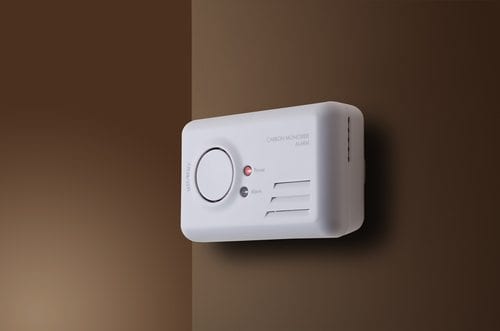Blog
Carbon Monoxide Detectors: How To Choose

New home owners and those renovating an existing home in Ohio are required to install carbon monoxide detectors if the house has an attached garage or any appliance that uses natural gas such as a stove or gas furnace. Deadly carbon monoxide gas (CO) is a colorless and odorless by-product of combustion of fuels like gasoline, natural gas or even wood in a fireplace. It kills about 500 Americans annually and over 10,000 people exposed to it require emergency room treatment. Many victims of CO gas are never aware of the threat as early symptoms of exposure can be mistaken for common illnesses such as the flu.
Today’s carbon monoxide detectors are sensitive, reliable units that detect increasing levels of CO gas in the home and alert occupants with a loud audible alarm. Most units are designed to warn people before CO levels become concentrated enough to cause noticeable symptoms. Here are some criteria for adding this critical safety factor to your home.
- Dual power source. For maximum safety, choose a plug-in detector that runs off of AC power and also incorporates a 9-volt backup battery to provide protection in the event of brief power outages.
- Sensor type. CO detectors that utilize an electrochemical sensor are considered state of the art today. They are more reliable and accurate than the metal oxide semiconductor sensor included in older, less expensive units.
- UL certified accuracy. Most CO detectors come with a specification that expresses the unit’s accuracy in parts-per-million of detected carbon monoxide. If the carbon monoxide detector is certified by Underwriter’s Laboratories (UL), the unit’s accuracy has also been tested and verified by UL.
- End of life alert. Carbon monoxide detectors have a finite service life of 5 to 7 years. After that point, the unit is no longer reliable and must be replaced. Look for a detector that emits an audio alert when the time to replace the unit is approaching.
Don't take chances with your family's health and safety. Ask the professionals at Apollo Heating, Cooling, Electrical and Plumbing for more advice about installing carbon monoxide detectors.



